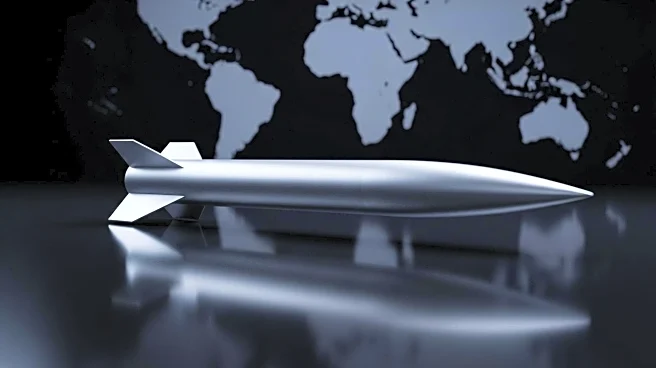What's Happening?
The United States government has announced that Pakistan is included as a future recipient of AIM-120 Advanced Medium-Range Air-to-Air Missiles (AMRAAMs) under the Foreign Military Sales (FMS) program. This development was revealed following a modification to a June 2023 contract awarded to Raytheon for the production of these missiles. The contract, valued at $41.6 million, covers the production of AMRAAM C-8 and D-3 variants. Pakistan's inclusion marks its first connection with this contract, as the country had not previously declared its intention to procure these missiles. The contract involves sales to 35 countries, and work related to this contract will be performed in Tucson, Arizona, with an expected completion date of May 30, 2030.
Why It's Important?
The inclusion of Pakistan in the FMS program for AIM-120 missiles is significant as it enhances the air-combat capabilities of Pakistan's Lockheed Martin F-16 fighter fleet. This move could potentially shift the balance of air power in the region, impacting geopolitical dynamics. For the U.S., this sale represents a strategic partnership and influence in South Asia, potentially countering other regional powers. The contract's expansion to include Pakistan also reflects the U.S.'s broader defense strategy and economic interests in maintaining and expanding its defense exports.
What's Next?
The completion of the contract work by 2030 suggests a long-term engagement between the U.S. and Pakistan in defense collaboration. This could lead to further military sales and cooperation, strengthening bilateral ties. Additionally, other countries involved in the contract may react to Pakistan's inclusion, potentially influencing regional defense strategies and alliances. Monitoring these developments will be crucial for understanding future geopolitical shifts in South Asia.
Beyond the Headlines
The sale of advanced military technology like the AIM-120 missiles to Pakistan raises questions about regional security and arms race dynamics. It may prompt neighboring countries to seek similar capabilities, potentially escalating military expenditures and tensions. Furthermore, the ethical implications of arms sales to countries with complex political landscapes could be scrutinized by international observers and human rights organizations.










